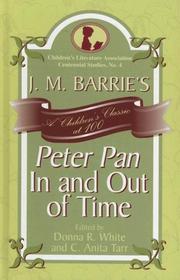| Listing 1 - 2 of 2 |
Sort by
|
Book
ISBN: 1003411037 Year: 2023 Publisher: Taylor & Francis (Unlimited)
Abstract | Keywords | Export | Availability | Bookmark
 Loading...
Loading...Choose an application
- Reference Manager
- EndNote
- RefWorks (Direct export to RefWorks)
"Even though we instruct our children not to lie, the truth is that lying is a fundamental part of children's development-socially, cognitively, emotionally, morally. Lying can sometimes be more compassionate than telling the truth, even more ethical. Reading specific children's books can instruct child readers how to be guided by an etiquette of lying, to know when to tell the truth and when to lie. Equally important, these stories can help prevent them from being prey to those liars who are intent on taking advantage of them. Becoming a critical reader requires that one learn how to lie judiciously as well as to see through others' lies. When humans first began to speak, we began to lie. When we began to lie, we started telling stories. This is the paradox, that in order to tell truthful stories, we must be good liars. Novels about child artists showcase how a protagonist embraces this paradox, accepting the stigma that a writer is a liar who tells the truth. Emily Dickinson's phrase "telling it slant" best expresses the vision of how writers for children and young adults negotiate the conundrum of both protecting child readers and teaching them to protect themselves. This volume explores the pervasiveness of lying as well as the necessity for lying in our society; the origins of lying as connected to language acquisition; the realization that storytelling is both lying and truthtelling; and the negotiations child-artists must process in order to grasp the paradox that to become storytellers they must become expert liars and lie detectors"--

ISBN: 0810854287 9780810854284 Year: 2006 Publisher: Lanham Toronto Oxford : Scarecrow Press,
Abstract | Keywords | Export | Availability | Bookmark
 Loading...
Loading...Choose an application
- Reference Manager
- EndNote
- RefWorks (Direct export to RefWorks)
Celebrating 100 years of Peter Pan, this fourth volume in the Centennial Studies series explores the cultural contents of Barrie's creation and the continuing impact of Peter Pan on children's literature and popular culture today, especially focusing on the fluctuations of time and narrative strategies. This collection of essays on Peter Pan is separated into four parts. The first section is comprised of essays placing Barrie's in its own time period, and tackles issues such as the relationship between Hook and Peter in terms of child hatred, the similarities between Peter and Oscar Wilde, Peter Pan's position as an exemplar of the Cult of the Boy Child is challenged, and the influence of pirate lore and fairy lore are also examined. Part two features an essay on Derrida's concept of the grapheme, and uses it to argue that Barrie is attempting to undermine racial stereotypes. The third section explores Peter Pan's timelessness and timeliness in essays that examine the binary of print literacy and orality; Peter Pan's modular structure and how it is ideally suited to video game narratives; the indeterminacy of gender that was common to Victorian audiences, but also threatening and progressive; Philip Pullman and J.K. Rowling, who publicly claim to dislike Peter Pan and the concept of never growing up, but who are nevertheless indebted to Barrie; and a Lacanian reading of Peter Pan arguing that Peter acts as "the maternal phallus" in his pre-Symbolic state. The final section looks at the various roles of the female in Peter Pan, whether against the backdrop of British colonialism or Victorian England. Students and enthusiasts of children's literature will find their understanding of Peter Pan immensely broadened after reading this volume.
Barrie, James Matthew --- Barrie, J.M. --- BARRIE (JAMES MATTHEW), 1860-1937 --- BARRIE (JAMES MATTHEW) --- ENFANTS --- LITTERATURE POUR LA JEUNESSE --- PETER PAN (PERSONNAGE FICTIF) --- CRITIQUE ET INTERPRETATION --- PETER PAN --- LIVRES ET LECTURE --- GRANDE-BRETAGNE
| Listing 1 - 2 of 2 |
Sort by
|

 Search
Search Feedback
Feedback About UniCat
About UniCat  Help
Help News
News